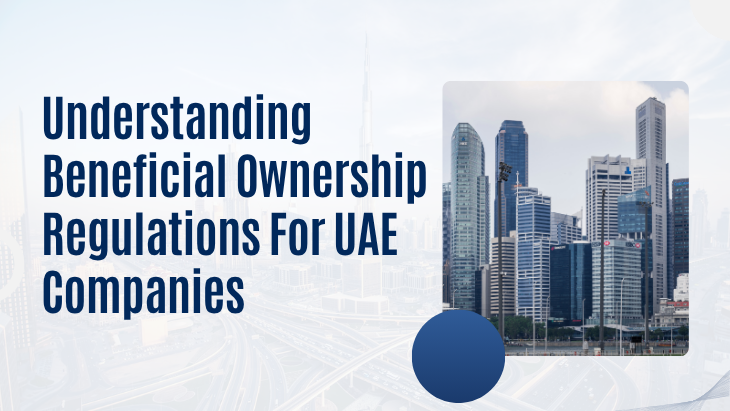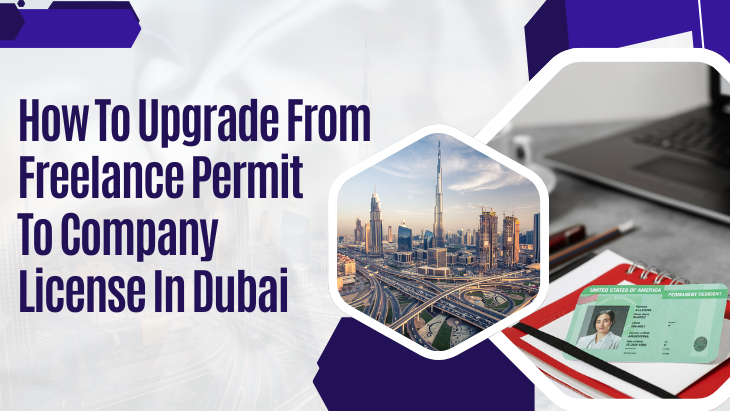In an era where transparency and regulatory compliance are vital to global business success, understanding beneficial ownership regulations is crucial for companies operating in the United Arab Emirates (UAE). Whether you are a small enterprise or a multinational corporation, the UAE requires businesses to declare their ultimate beneficial owners (UBOs) to help combat illicit financial flows and promote good corporate governance.
This blog explains what beneficial ownership means, outlines the UAE's regulatory framework, and highlights your compliance obligations, particularly if you're involved in mainland company formation or exploring offshore company formation or other emirates.
Overview of UAE’s Legal Framework
In August 2020, the UAE introduced Cabinet Resolution No. 58 of 2020 on the Regulation of Beneficial Owner Procedures. This law aligns with international standards set by the Financial Action Task Force (FATF) and OECD, reinforcing the UAE’s commitment to global transparency and anti-money laundering (AML) initiatives.
This regulation is part of the country's broader strategic effort to improve its global financial reputation and comply with FATF guidelines after the UAE was placed on the FATF grey list. Adopting clear rules for beneficial ownership ensures that financial institutions and regulators can identify the individuals behind complex corporate structures.
The resolution requires all UAE-registered companies—except those wholly owned by the government or licensed in financial free zones like DIFC and ADGM—to maintain and submit a register of their beneficial owners.
Key Definitions
1. Beneficial Owner
A beneficial owner is a natural person who ultimately owns or controls a company, either directly or indirectly. This individual enjoys the benefits of ownership even though the title to some form of property or business is in another name.
2. Legal Owner vs. Beneficial Owner
• Legal Owner: The person or entity listed as the official owner in registration documents.
• Beneficial Owner: The person who exercises actual control or enjoys benefits from the ownership, regardless of whose name appears on official documents.
3. Ultimate Beneficial Owner (UBO)
The UBO is typically the person who:
• Owns 25% or more of the company shares or voting rights,
• Exercises control via other means (e.g., through contractual relationships),
• Or holds senior management positions if no one qualifies under the above criteria.
Objectives of Beneficial Ownership Regulations
1. Enhancing Transparency
The core aim of these regulations is to ensure full transparency in corporate structures. It helps governments and regulatory bodies identify the actual people behind companies, which is critical for investigations into financial crime.
2. Combating Money Laundering and Terrorism Financing
By mandating disclosure of beneficial owners, the UAE enhances its capability to detect and prevent illegal financial activities like money laundering and terrorism financing.
3. Building Investor Confidence
When investors have clarity about the ownership and governance of a company, they are more likely to invest. This is especially crucial for startups and SMEs engaging in mainland company formation in Dubai or establishing a presence via offshore entities.
Who Must Comply?
Beneficial ownership regulations apply to nearly all types of companies registered in the UAE, including:
1. Free Zone Companies: All free zone companies must comply, except those licensed in financial free zones such as DIFC and ADGM, which have their own strict regulatory environments.
2. Mainland Companies: All businesses registered under authorities such as the Dubai Economy and Tourism (DET) or other emirate-based DEDs are required to maintain and submit beneficial ownership information.
3. Offshore & Nominee Structures: Entities formed under offshore company formation in Dubai (e.g., JAFZA Offshore, RAK ICC) are subject to these rules. Companies using nominee shareholders or directors must still disclose the actual beneficial owners behind such appointments.
Beneficial Ownership Thresholds
1. 25% Ownership Rule: Any individual who directly or indirectly owns 25% or more of a company’s share capital or voting rights qualifies as a beneficial owner under UAE regulations.
2. Control & Influence Factors: Ownership isn’t the only qualifying factor. Individuals who exert control through influence, even without holding shares (e.g., via decision-making roles), may also be classified as UBOs.
3. Indirect Ownership Explained: Indirect ownership can occur when a person controls a chain of companies, trusts, or other legal arrangements that, in turn, own the reporting company. Complex ownership chains must be analysed thoroughly.
Required Documentation
To comply with UBO regulations, companies must maintain the following:
1. UBO Register
This should include:
• Full name
• Date and place of birth
• Nationality
• Residential address
• Passport or Emirates ID number
• Basis and date of beneficial ownership
2. Shareholder Register
Details all individuals or entities holding shares in the company, including their ownership percentages and dates of ownership.
3. Nominee Director Register
If any director is acting on behalf of another person, their name must be recorded along with the details of the person they represent.
Timeline for Compliance
Initial Deadlines
Existing businesses had until October 2020 to submit their UBO information. Newly formed businesses must comply within 60 days of incorporation.
Ongoing Reporting Obligations
Any changes to beneficial ownership details must be reported within 15 days. Regular updates are essential to maintain compliance.
Steps to Determine the Beneficial Owner
Step-by-Step Identification Process
1. Examine the shareholding structure.
2. Identify individuals with 25% or more ownership.
3. Determine if any control is exercised through other means.
4. Review management roles if no individual meets the above criteria.
Challenges in Complex Structures
Determining UBOs can be complicated in entities with multi-layered ownership, especially when offshore companies or trusts are involved. Professional assistance is often needed in such cases.
Filing Process with Authorities
1. Ministry of Economy Portal
Mainland companies can upload their UBO register through the Ministry of Economy’s Anti-Money Laundering (AML) portal or through local DED platforms.
2. Free Zone Authority Guidelines
Each free zone, such as DMCC or RAKEZ, has its own platform and compliance timelines. Failure to meet deadlines may impact license renewals.
Penalties for Non-Compliance
1. Fines and Administrative Sanctions
Penalties can range from AED 50,000 to AED 100,000 depending on the severity and duration of non-compliance.
2. Suspension or Deregistration
Repeated violations may lead to the suspension of trade licenses or the removal of the company from the official register.
Beneficial Ownership in Corporate Governance
1. Internal Controls & KYC
UBO compliance is a crucial part of internal governance. Companies must integrate Know Your Customer (KYC) procedures and risk-based assessments.
2. Compliance Officer’s Role
Medium to large enterprises are encouraged to appoint a compliance officer responsible for maintaining UBO records and coordinating with authorities.
How the UAE Ensures Data Confidentiality
Who Can Access the UBO Register?
The register is not public. Only select government bodies and regulators can access the information for legal or compliance purposes.
Data Protection Measures
UBO data is protected under Federal Decree-Law No. 45 of 2021 on the Protection of Personal Data, ensuring robust confidentiality and security protocols.
Impact on Business Operations
1. Banking & Financial Transactions
Banks require verified UBO details to open or maintain business accounts. Delays or inaccuracies can result in frozen accounts.
2. Investor Due Diligence
Accurate UBO data is often requested during investment rounds, especially from venture capital firms and institutional investors.
3. Mergers & Acquisitions
Clear ownership records simplify due diligence and legal documentation during mergers, acquisitions, or joint ventures.
Best Practices for Compliance
1. Regularly Updating Registers
Companies should conduct biannual reviews of ownership structures to ensure their records remain current and compliant.
2. Legal Consultation & Audit
It is advisable to consult legal experts familiar with offshore company formation in Dubai or multi-jurisdictional structures to avoid errors.
3. Leveraging Tech for Compliance
Use digital platforms to automate record-keeping, trigger reminders for updates, and secure sensitive data with encryption and access controls.
Conclusion
Beneficial ownership transparency is now a non-negotiable aspect of doing business in the UAE. Whether you're involved in mainland company formation in Dubai or considering an offshore entity, understanding and implementing UBO compliance is essential for operational success.
These regulations not only protect businesses from legal penalties but also improve their reputation, investor trust, and access to banking and investment services. The UAE’s commitment to global standards ensures it remains a leading destination for legitimate and transparent business activities.
Working with a reliable business consultancy can streamline your compliance journey, from UBO register preparation to ongoing updates, allowing you to focus on scaling your venture with confidence.











Leave a reply